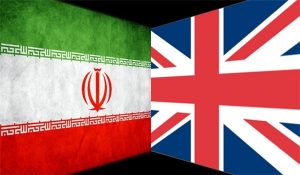The British Conservative Government’s Political Elite, and the European Union: Safeguarding British Interests (With Special Reference to: 2010 – 2016)
“In the course of the nineteenth century, England adopted peacefully and without violent shocks almost all the basic civil and political reforms that France paid so heavily to achieve through the great revolution. Undeniably, the great advantage of England lay in the greater energy, the greater practical wisdom, the better political training that her ruling class possessed” so said Gaetano Mosca in 1923.
For the first part of the nineteenth century the national political rulers were drawn exclusively from the landed class and the City fraction of the commercial class, with the manufacturers and provincial merchants pursuing their interests in the towns and cities. It was in the middle of the century that the old partisan style of national politics began to break down as the changing balance of power within the privileged classes led to changes in the composition of the political leadership. The paradoxical situation which existed in 1819 has been summarised by Halevy in the following terms: “It was the Tories… who secured the triumph of the old Whig doctrine of supremacy of parliament… It was the leaders of the Whig opposition who… were battering to pieces the old edifice of Whig aristocracy”15. It could be said that the Tory’s policy was essentially a negative protection of the established social order. The changing balance of power between the landed class and the manufacturing class meant that some economic reforms were eventually forced on the government. “But the pace of economic reforms was not as rapid as the manufacturers wanted. It was not until the change of government in 1830 that this changed. The Whig government, faced with the tension between maintaining the political power of the landed class and satisfying their commercial and manufacturing supporters, speeded up the move towards a laissez-faire, facilitative state”16.
The dominant form of representation until 1860 was, as some call it, ‘elitism’, a system of representation in which the interests of a privileged social class are mediated through their position as a dominant status group. The notion of the gentleman in the early nineteenth century was the means through which the landed class defined itself as the natural rulers of society. Landowners regarded themselves as having a right, indeed an obligation, to exercise such power and to speak on behalf of those who were not entitled or competent to participate in the exercise of political power. But from the 1840’s a rival principle of ‘electoralism’ became more and more significant.
Pages: 1 2 3 4 5 6 7 8 9 10 11 12 13 14 15 16 17 18 19 20 21 22



